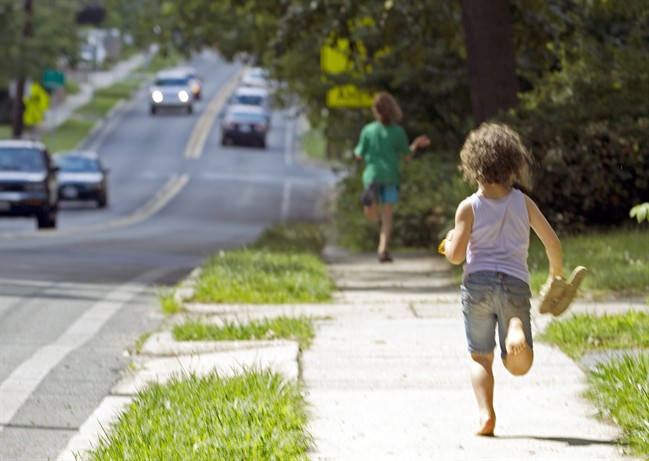In the wake of the Attawapiskat crisis, a new report from UNICEF finds that among the world’s wealthiest nations, Canada is one of the least egalitarian when it comes to children.

The new global study, Report Card 13: Fairness for Children published Thursday, looked at “bottom-end inequality” and how Canada’s poorest children to fall behind the middle class.
READ MORE: Nearly 1 in 5 Canadian children living in poverty: report
UNICEF ranked Canada 26th out of 35 nations when looking at inequalities in four key areas — income, health, education and life satisfaction.
“I hope it’s a wake-up call,” David Morley, president and CEO of UNICEF Canada, told Global News. “Even though Canada is one of the wealthiest countries in the world the issue of child inequality just isn’t going away.
“The poorest and the most marginalized children are falling behind and they continue to fall behind. This is not the Canada we want or the Canada we think we have.”
The new study shows things have been getting worse for the country’s poorest children; a 2013 study by UNICEF ranked Canada 17th out of 29 rich countries.
The new data shows that Scandinavian countries, Denmark, Finland, Sweden and Norway all finished in top spots in the study along with countries like Switzerland, Austria, and the Netherlands. Israel and Turkey were found to have the highest levels of child inequality.

Get breaking National news
READ MORE: Attawapiskat’s suicide emergency is no surprise to anyone paying attention
Canada’s increasing Income inequality can help explain the lack equality in health, education, and life satisfaction, according to the study.
Canada is among the countries with both the highest proportion of children reporting very low life satisfaction, according to UNICEF. Low life satisfaction is associated with poor mental health, low physical activity, more risk behaviours (particularly bullying), and wider inequality in family affluence. When looking at gender inequality, the study found 15-year-old girls have a lower sense of life satisfaction than boys.
“I think we assume because we are a wealthy country, we turn a blind eye to (inequality),” said Morley. “I believe that we are a great country to live in but we are not as good as we could be.”
READ MORE: 13 kids taken to hospital over fears of ‘suicide pact’
Morley said things like the forthcoming Canada Child Benefit, a commitment to promoting healthier eating for children, and greater flexibility for parental leave in both the private and public sector will help lift children out of poverty.
UNICEF’s report comes as the northern Ontario reserve of Attawapiskat is dealing with a crisis of suicide attempts among its young people.
READ MORE: Ontario health minister says trip to Attawapiskat ‘deeply upsetting’ but hopeful
The First Nations community of roughly 2,000 near James Bay declared a state of emergency after a spike in suicide attempts that led to medical teams being deployed to the reserve and sparked debate among Canadian MPs over the problems faced by indigenous communities
“Unequal access to education and health care for First Nations is a big part of it,” said Morley, adding that the over representation of First Nation’s children in the welfare system is a huge issue.
“As we work together with First Nations leaders and chiefs, I think all of us non-indigenous people need to listen and to see what are the strengths in those communities.”
UNICEF Canada is calling on all levels of government to invest more and earlier in children, improve monitoring of child well-being and enact policies that support equitable services for all children.









Comments